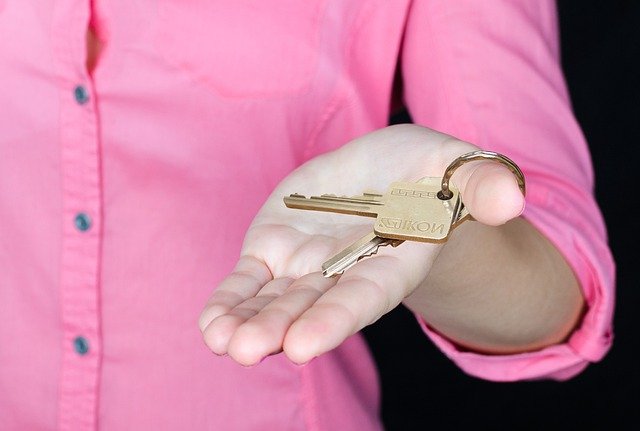A Landlord’s Solution to Preventing Duplicate Keys
One of the most worrying issues for landlords has to be unauthorised key duplication. It can be a significant security risk, not just for the property owner, but also for inbound tenants. Thankfully there is a solution. Registered key systems prevent duplicates being made without an authorised signature. Let’s take a look at how they work, and how this security measure can provide peace of mind for landlords.
One of the most worrying issues for landlords has to be unauthorised key duplication. It can be a significant security risk, not just for the property owner, but also for inbound tenants. Thankfully there is a solution. Registered key systems prevent duplicates being made without an authorised signature. Let’s take a look at how they work, and how this security measure can provide peace of mind for landlords.
Registered key systems make use of restricted security keys. They can be used for any type of lock, including mortice, cylinder, cabinet locks and padlocks.
A registered key system is patented for a particular length of time. This is usually up to 20 years, during which time duplicates cannot be produced unless an order is signed by an approved signatory.
Landlords are advised to top for the longest patent duration they can, so they have maximum control over the security of their properties.
How do registered key systems work?
Registered key systems make key control straightforward and secure. Say you issue a new tenant with a set of four keys. These are all registered, so only you or someone you have approved can obtain duplicates. If the tenant were to attempt to obtain a copy of any of the keys, they would be asked for ID, and checks would be made to ascertain whether they were an authorised signatory.
To obtain registered keys in the first place, landlords must provide proof of ownership of the property, together with photo ID. This same ID will be requested each time a duplicate key is requested. Each time a key is ordered, the details are recorded on a central system, so there is a full audit trail of what has been ordered and when.
The whole process negates the need to change locks every time there is a tenant changeover.
What are ‘suited’ keys?
If you rent out property to multiple tenants, perhaps an HMO or a block, then you’ll know how complicated things can get when you need to issue multiple keys for different access points. The same goes for when you need to provide keys for maintenance, cleaning and other service providers.
The solution to this is suited keys. Also known as ‘keyed alike’, this type of key system makes it possible to issue a single key for multiple access points.
Any restricted key system can be suited, enabling keys to be used to open set groups of doors or cupboards.
For example, tenants could be provided with a single key that provides access to the laundry, the gym and the waste store.
You can also make your own life easier by having a master key cut that will allow you access all areas. These are also useful for contractors or managing agents. The great thing is that you have total peace of mind that the key cannot be copied without your authorisation.
Where to buy a registered key system?
Registered key systems are best installed by a Master Locksmiths Association accredited locksmith. This will ensure they are professionally installed and insurance compliant. The system will be tailored to your requirements.
Registered key systems can prove to be an excellent security measure for landlords. If you are keen for reassurance that your keys will never be duplicated without you knowing, they are certainly a worthwhile investment.
Looking to secure your rent as well as your property? Look to homes2let.
If security is high on your agenda as a landlord, then you’ll want to extend that to ensuring your rent is secure too.
The homes2let guaranteed rent scheme secures rental payments, even during void periods, whilst at the same time removing the burden of property management off your shoulders. With everything covered, from tenant sourcing and referencing to property maintenance and inspections, you’ll be able to take a hands-off approach to property investment.
Why not get in touch with our expert team to discover how we can make your life as a landlord that bit more secure?
Related Insights

Tenant Referencing Crisis on the Cards as COVID Damages Thousands of Credit Scores
The National Residential Landlords Association (NRLA) is warning of a looming tenant referencing crisis as thousands of tenants are facing damaged credit scores caused by legal action over rent arrears in the wake of the COVID-19 pandemic. As this crisis intensifies and no government help seems forthcoming, landlords are wise to seek a reliable way to guarantee their rent.

4 Great Reasons to Invest in Buy to Let Property in Croydon
Croydon, town and borough, is thriving. And it is no wonder as, with such a significant level of investment, the area has recently been named the UK’s fastest growing economy. Here’s a look at some of the large scale development projects that are currently underway or in the pipeline, which could make Croydon a lucrative place to invest in buy to let property.

Landlords: How to Winter Proof Your Rental Property
With temperatures plummeting, so the risk to property damage increases. Winter is therefore a vital time for landlords to put measures in place to safeguard their investment. Let’s take a look at some of the most essential steps you should be taking to protect your rental property during the harshest months of the year.







